Depression Part 3

This week's article will bring home the topic of depression with some options that are outside the box. Not everyone responds to conventional treatments, and having alternative options, as I've said in the previous two articles, can give a patient hope when things seem bleak.
We've discussed conventional treatments and lifestyle modifications in the form of diet and exercise. Today, I would like to review the use of targeted dietary supplements to treat depression.
Let's start with the lowest hanging fruit, a nutrient that you can get for free 5-6 months out of the year, and when you must pay for it, the cost is as low as eleven cents per day. That nutrient is Vitamin D and low levels were found to correlate with major depression and premenstrual mood symptoms in women and mood disorders and cognitive impairment in older adults. A Vitamin D deficiency is associated with an increased risk for depression. Low Vitamin D levels may contribute to poorly regulated mood and behavior, as a deficiency can impair cognitive function and brain health.
Research studies have documented an association between low serum vitamin D levels and higher incidences of mood disorders: PMS, Seasonal Affective Disorder (SAD), anxiety, non-specified mood disorder, and major depressive disorder. So get out in the sun or supplement with a product that will optimize your vitamin D level.
A recent study published in August 2022 in the online journal Nutrients showed not only that deficient dietary omega-3 intake is a modifiable risk factor for depression and that individuals with low consumption of omega-3 food sources have more depressive symptoms.
In the longitudinal study of more than 13,000 participants, consumption of omega-3 fatty acids was associated with a 2%-65% reduction in the risk for depressive episodes in patients with depressive episodes at baseline. In addition, consumption of total fatty acids and alpha-linolenic acid was associated with a reduced risk for incident depressive episodes (9% and 29%, respectively).
Population studies by renowned psychiatric researcher Joseph Hibbeln, M.D., and others draw strong connections between "low intake of omega-3 fatty acids and increased risk of depression, anxiety, and related mood disorders."
Our typical American diet of high omega-6 (associated with inflammation) and low omega-3 (anti-inflammatory) polyunsaturated fatty acids (the ratio can be as high as 30:1 and should ideally be 4:1) are linked to depression and anxiety, and possibly one of the reasons why this is so prevalent in our country. Supplementing EPA-DHA at 2.5 grams daily significantly reduced anxiety and inflammation.
According to a 2014 randomized, single-blinded, placebo-controlled study of 60 Major Depressive Disorder patients, curcumin (800 mg. daily) alone yielded a similar response rate to the antidepressant fluoxetine (Prozac) in terms of depressive symptoms.
This 2015 double-blind, placebo-controlled study using 1000 mg. of curcumin daily enhanced Lexapro's effectiveness. Growing evidence indicates that changes in the gut microbiota composition are related to mental health, including anxiety and depression.
This study published in Food & Nutrition Research indicated that Bacillus coagulans, a soil-based probiotic, "showed robust efficacy for treating patients experiencing IBS symptoms with major depressive disorder. The improvement in depression and IBS symptoms was statistically significant and clinically meaningful." This systematic review supports the potential role of probiotics in reducing the risk of depression.
Investigators led by Queen's University, Kingston, Ontario, Canada, found that symptoms of mood, the inability to experience pleasure, and sleep disturbance were significantly reduced with probiotic therapy after just four weeks, with results maintained at eight weeks. The findings are particularly interesting because probiotics are not associated with adverse effects compared to antidepressant medicines and can be safely taken over long periods. The investigators note, "suggest that probiotics may be effective in alleviating depressive symptoms such as mood, inability to experience pleasure, and sleep quality."
Results from preclinical and clinical studies suggest that probiotics improve symptoms of depression. The hypothesis is that the effects are mediated via the gut-brain axis by reducing inflammation and increasing serotonin levels.
SAMe (S-Adenosylmethionine) is produced in the liver from the amino acid methionine and functions as a methylation agent, transferring methyl groups between molecules. It participates in 35-40 essential biochemical processes, including detoxification reactions and manufacturing brain chemicals, antioxidants, and joint tissue structures. Folic acid and vitamin B12 are necessary for the formation of SAMe, and deficiencies of these vitamins result in low concentrations of SAMe in the central nervous system.
Deficiencies in B12 and Folic acid have been linked to depression, and one of the results of folate or B12 deficiency may be a reduction of SAM-e. One advantage of using SAM-e for depression is that it may bypass any MTHFR polymorphisms. A person with an MTHFR deficiency may not be able to metabolize folate properly and thus resulting in lower levels of SAM-e and hence less synthesis of the neurotransmitters such as dopamine, serotonin, and acetylcholine. So by giving SAM-e, we continue stimulating the synthesis of these key neurotransmitters, which may be how it exerts its antidepressant effect.
More than 50 clinical trials have been published for SAM-e and depression, with doses ranging from 200 to 1600 mg a day and, more recently, doses even as high as 3200 mg a day. The studies support SAM-e as more effective than a placebo and about equivalent efficacy for depression as tricyclic antidepressants.
Melatonin, a hormone that controls the sleep-wake cycle, reduces self-harm in young people with depression and anxiety. The effects were more pronounced in females with anxiety and depression. Melatonin is the most prescribed drug for sleep disturbances in children and adolescents in Sweden. Medical sleep treatment may reduce self-harm in young people with anxiety and depression, an observational study from Karolinska Institute in Sweden suggests.
Looking at the list of possible dietary supplements, we have 3 of the core four nutrients, including vitamin D, probiotics, fish oil, and a multivitamin, in the list of possible nutrients to treat depression. How many people with depression lack the core four nutrients, and would taking them help that group of patients?
If you have questions or need help with medications or dietary supplements for depression, call the pharmacy @ 701-483-4858 or stop in to schedule a consultation. Please visit my website at www.irsfeldpharmacy.com to find this and other archived articles in the blog section.
Until next time, be vigilant about your health!!!
VISIT US
HOURS
HOURS
CONTACT US
Fax #: (701) 483-4926


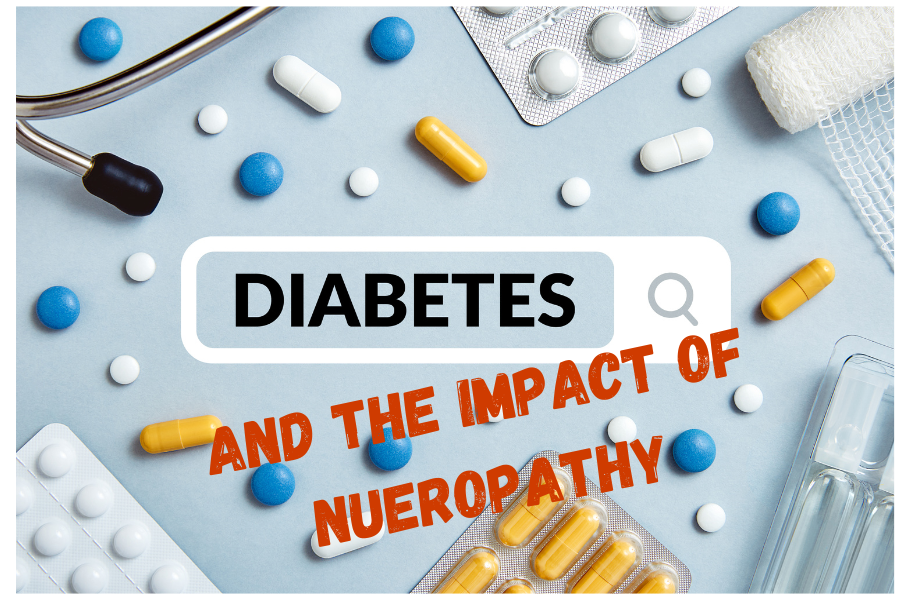

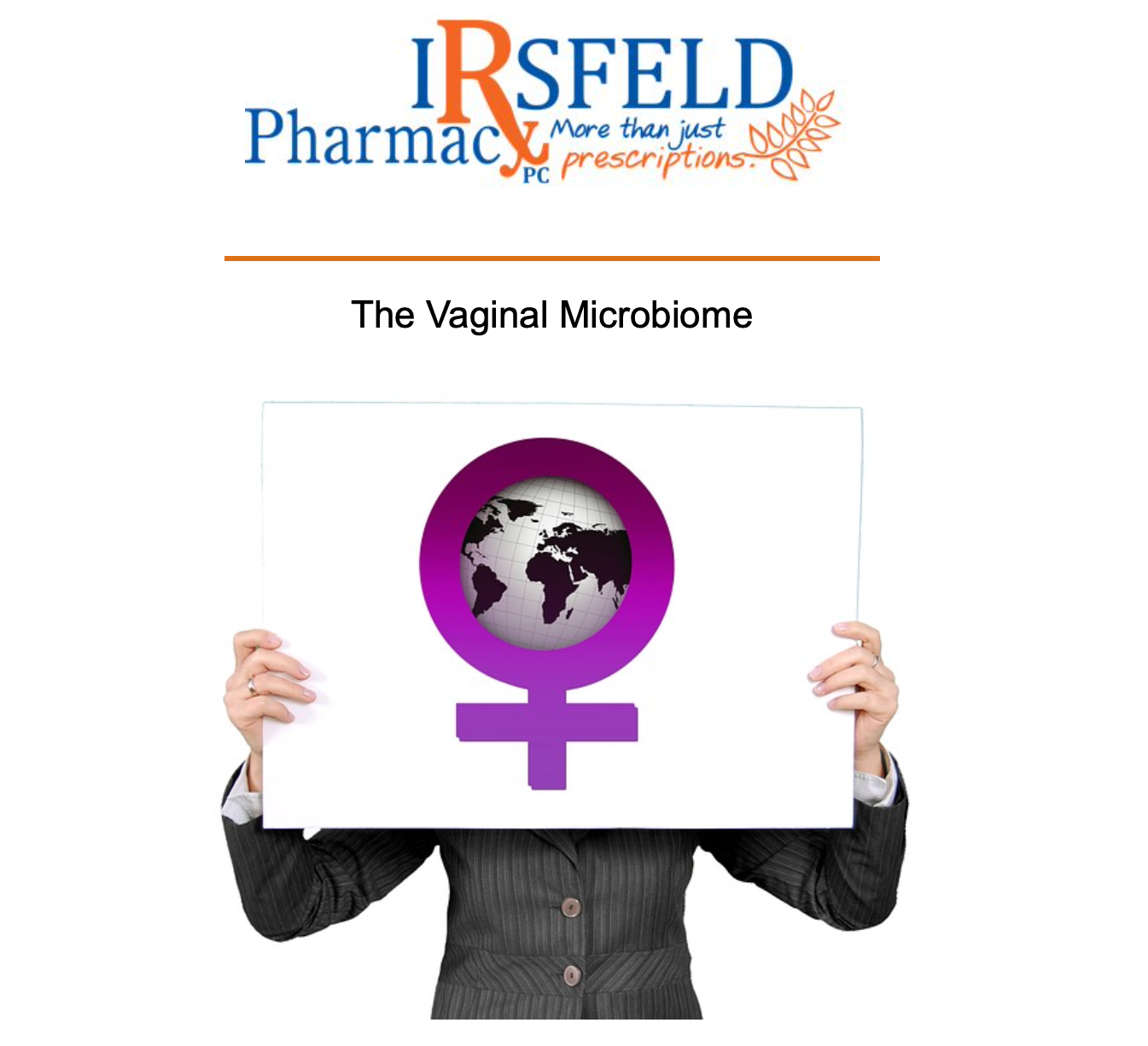
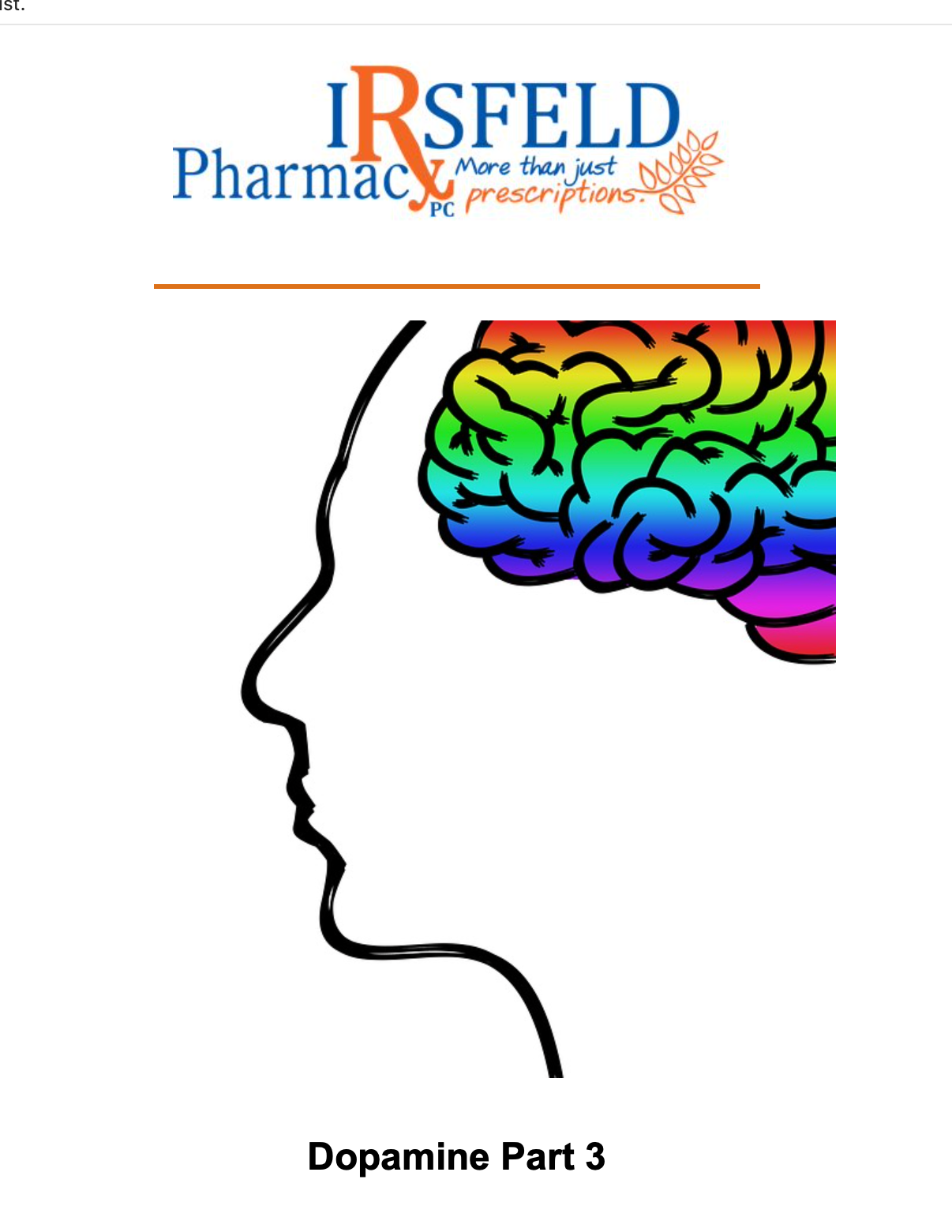
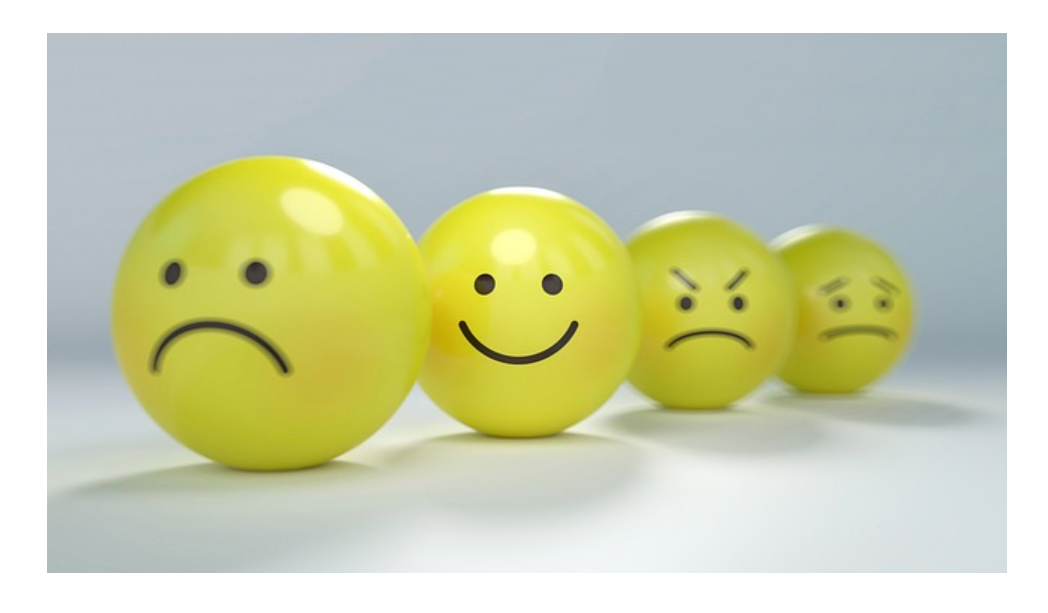
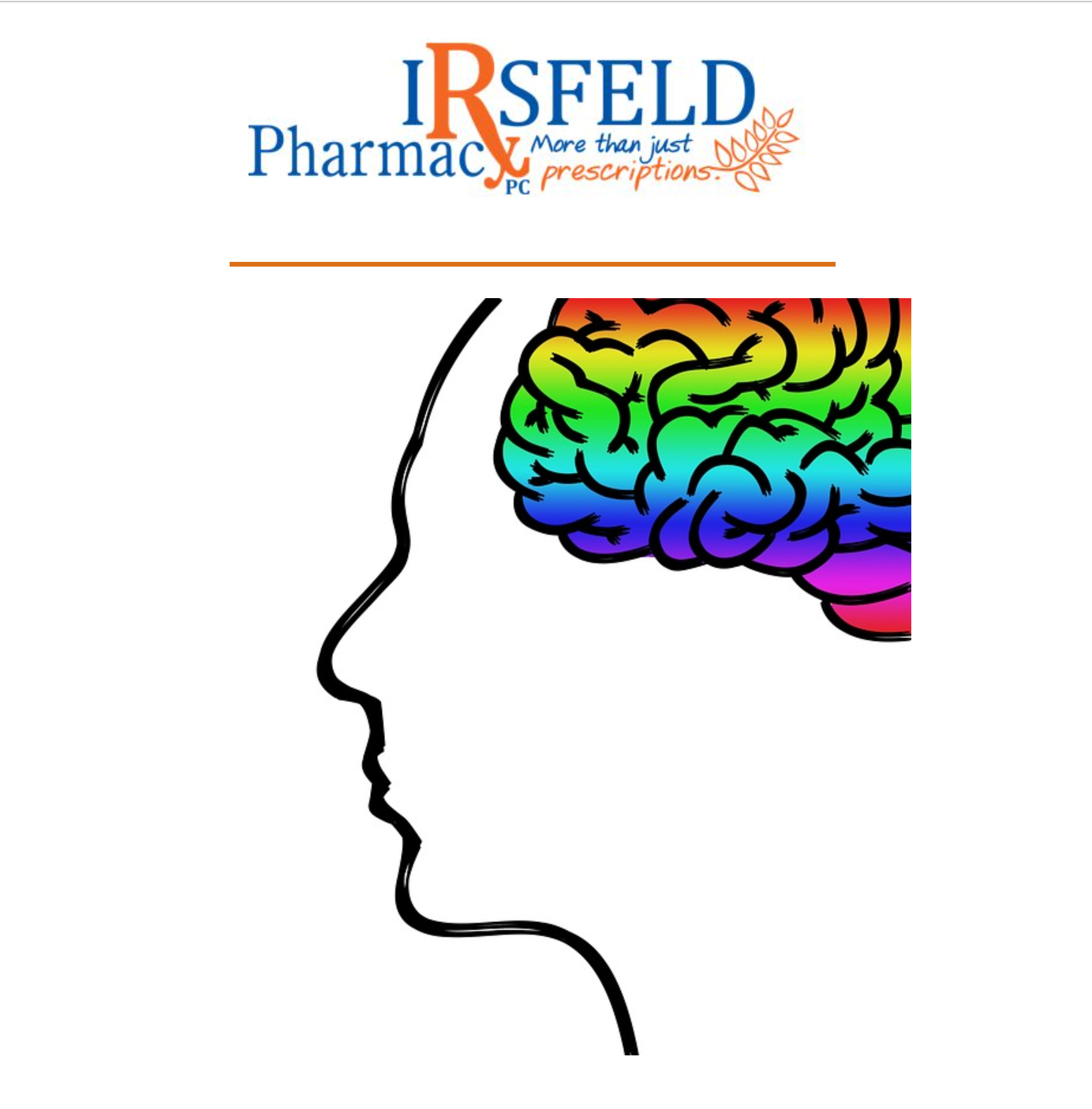
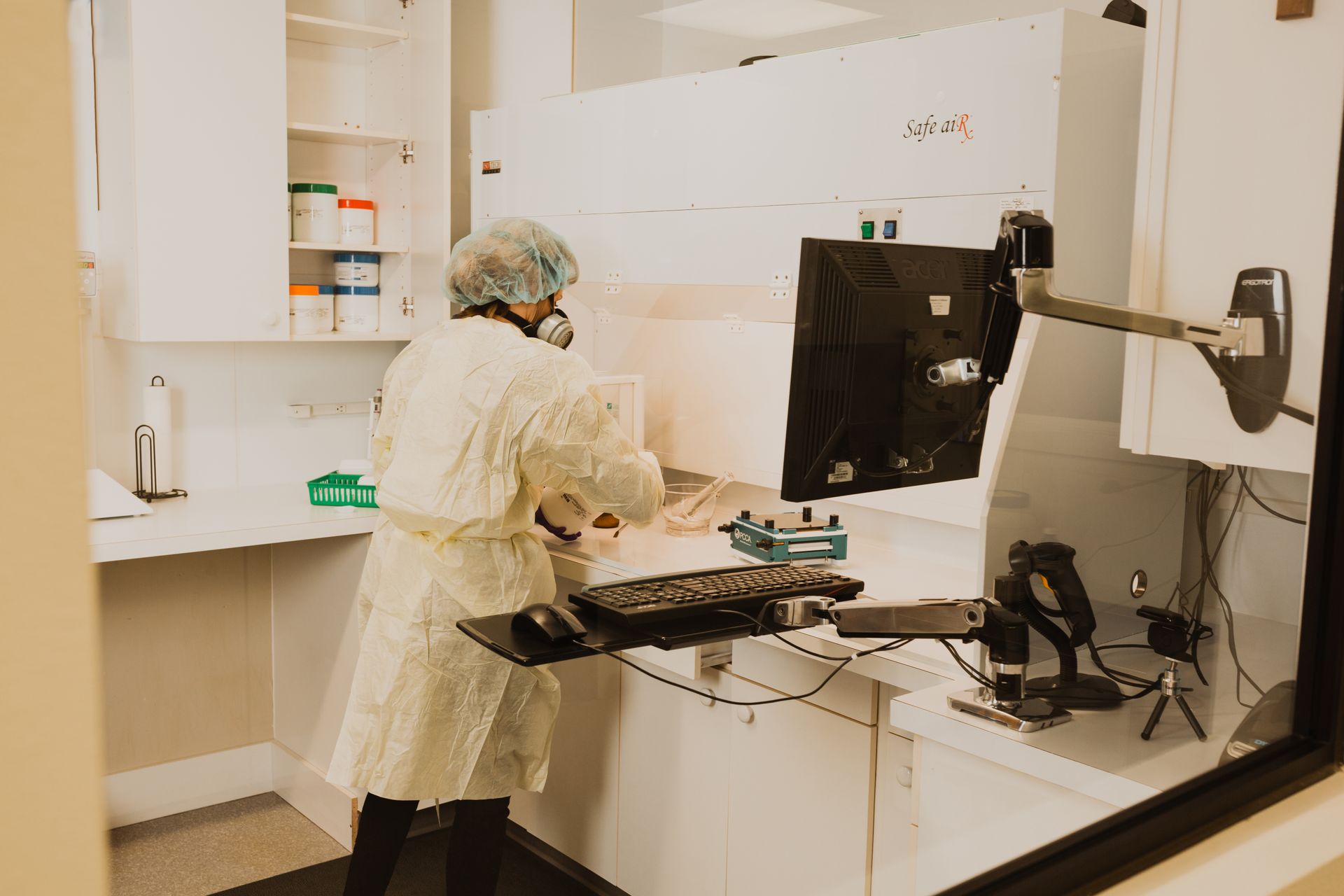
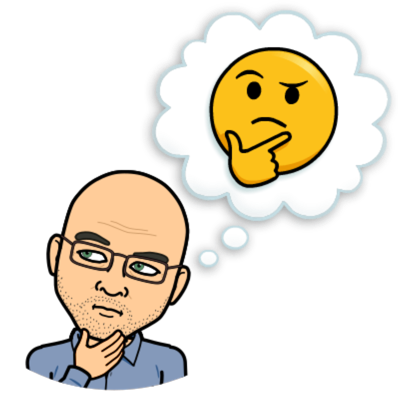
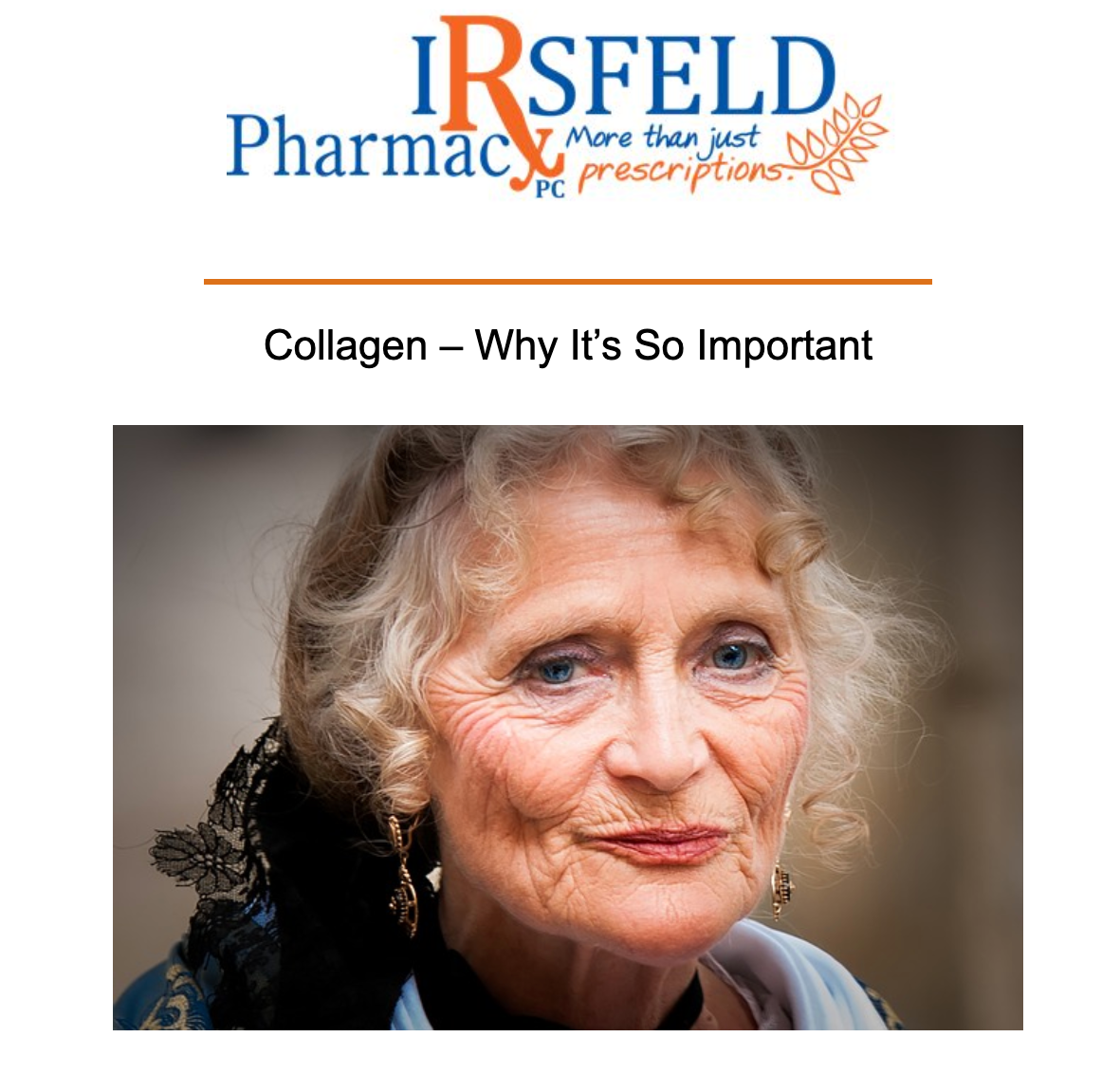
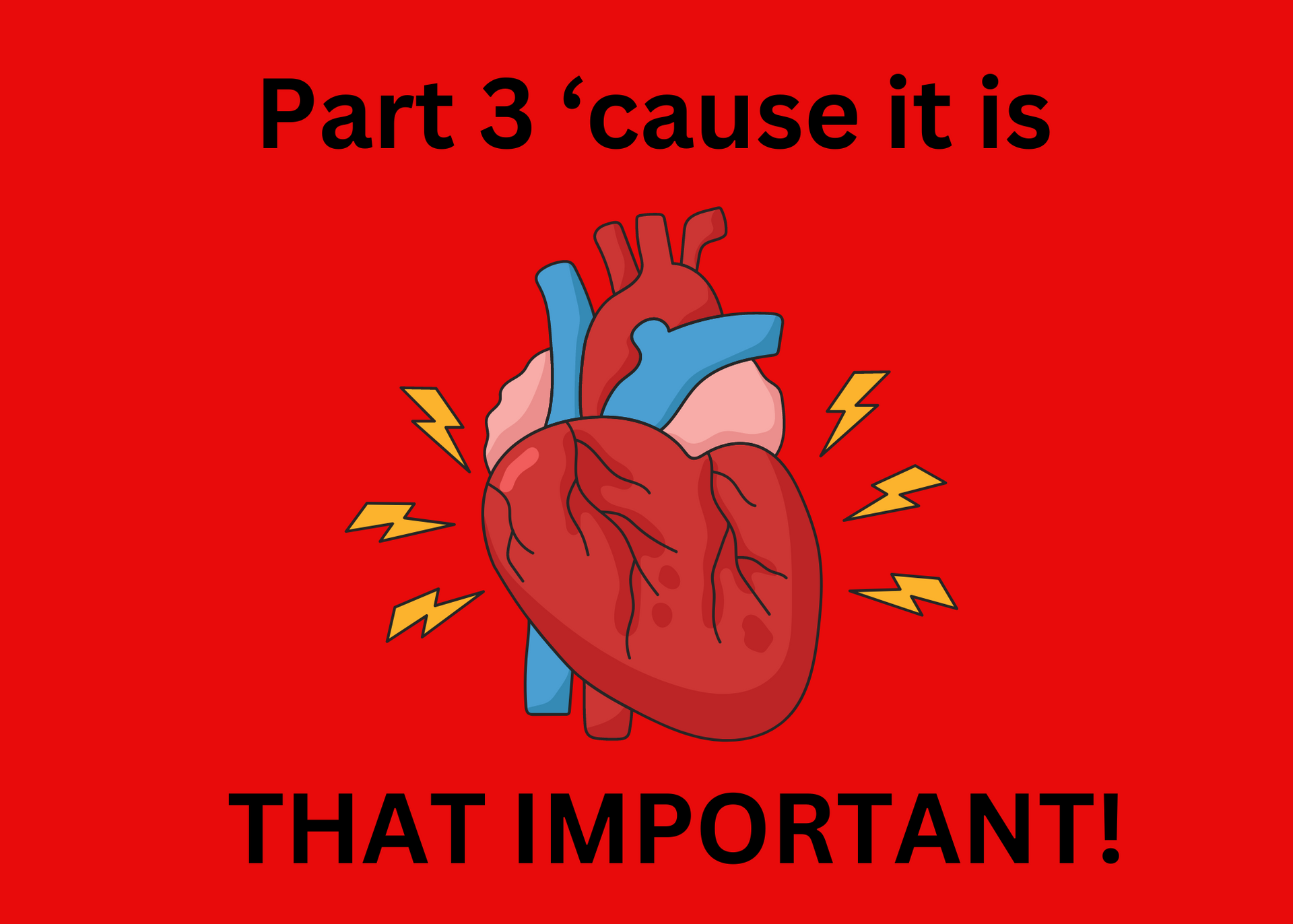
Share On: